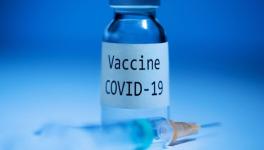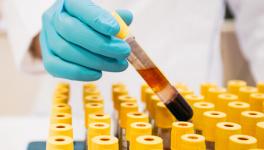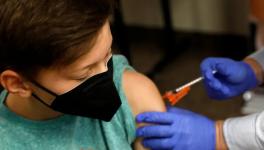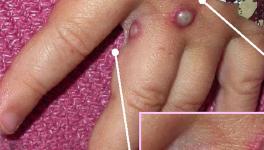COVID-19: Latest Study Says Immune Memory Against Virus Could Last for Eight Months
Our immune system is an unceasing fighter against any virus, bacteria or fungi which can be potentially harmful to us. In fighting such harmful agents – pathogens – our immune system also trains itself in a variety of ways. One such way is to build up memory against a particular pathogen that the immune system once encountered. This immunological memory offers the immune system the ability to respond rapidly when that particular pathogen re-enters the body.
In order to build such an immune memory the immune system uses various components. The four important ones are the antibody Immunoglobulin G (IgG), memory B cell (a cell sub-type formed following primary infection), memory T cell (antigen-specific T cells which stay long after an infection has been eliminated) – CD4+ and CD8+ cells.
Antibodies function by binding themselves to a particular pathogen to destroy it. Antibodies produced against a pathogen retain information about the pathogen and can act quickly when the pathogen re enters the body. Memory B cells – a kind of cell within the immune system which retains information about a pathogen for decades – can elicit a quick action against a pathogen when it re-enters the body.
Memory T cells are of two types, named the helper memory T cells or CD4+ memory T cells and the T cells or CD8+ memory T cells. T cells are pathogen specific and remember the pathogen against which it has acted. When the pathogen re-enters the body, both types of the memory T cells show a rapid response.
A recent study, published in Science on January 8, analysed all these memory components in case of SARS-CoV-2, the pathogen behind the COVID-19 pandemic. The study found that some of these memory components survived for up to eight months after the infection occurred.
The IgG antibody, generated against the virus spike protein, was found to be stable even six months after the infection. Memory B cells were found to be more abundant six months later the infection than a month after it.
The study said that the CD4+ T cells, capable of preserving memory, can trigger a quick immune response whenever a second infection occurs, The other type of T cell – killer T cells or CD8+ T cells – also have memory and are ready to destroy any cell that is infected by the virus again.
Noted immunologist Professor Alessandro Sette from La Jolla Institute for Immunology in the US, a co-author of the study, reportedly said: “Our data suggest that the immune response is there – and it stays. Of course, the immune response decreases over time to a certain extent, but that''s normal. That's what immune responses do. They have a first phase of ramping up, and after that fantastic expansion, eventually the immune response contracts somewhat and gets to a steady state.”
As part of the study, researchers sampled 188 COVID-19 cases and conducted their analysis on 254 blood samples collected from them. More than 43 samples were taken more than six months after the infection happened. The 188 people who were sampled included 80 males and 108 females. They represented the entire range of symptoms—asymptomatic, mild, moderate and serious COVID-19 cases.
Out of the subjects considered for the study, 93% were never hospitalised for treatment, seven percent needed hospitalisation and few among them required admission to an ICU. This is a noteworthy since if the immunological memory could last for months even in patients with milder symptoms, then these memories are more likely to exist for a prolonged period in severely affected patients.
The IgG antibody against the viral protein were found to be durable with a modest decline after six to eight months. The study also mentioned that the memory B cells against the spike protein were detected in all the 188 cases; importantly, they were found to have no apparent half-life (time required for a quantity to reduce to half of its initial value) five to eight months post-infection.
The half-life of memory T cells was observed to be between 125 and 225 days for killer T cells and between 94 and153 days for CD4+ T cells or the helper T cells. The study said that the immunity in case of COVID-19 is comparable that observed in the case of yellow fever immunisation.
Get the latest reports & analysis with people's perspective on Protests, movements & deep analytical videos, discussions of the current affairs in your Telegram app. Subscribe to NewsClick's Telegram channel & get Real-Time updates on stories, as they get published on our website.























